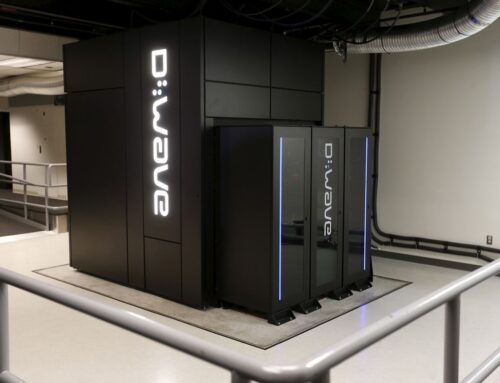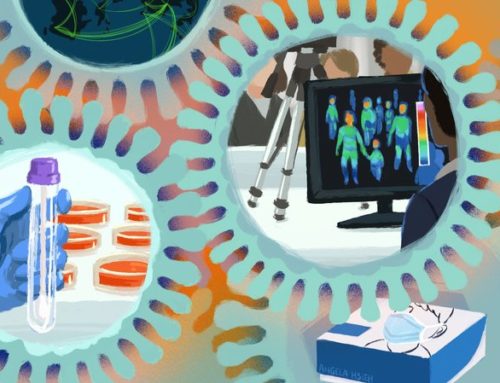Image via United Nations University
Part 3 of 3: Modelling
Gabriella Skoff
The final instalment in this series explores the modelling capacity that quantum computing promises to unlock. Modelling is a key tool in environmental security, enabling scientists and researchers to explore how the natural environment will react to changing conditions over time. It is well-known that quantum computers will enable advanced modelling technology by exponentially expanding the rate and scope of mathematical modelling capacity well beyond that of today’s computers. While the impact of this is most often cited with regard to chemical reactions and the pharmaceutical and health industries, environmental security, too, will be a great beneficiary of this quantum application.
Quantum computers will enable wider and more in-depth analysis of complex problems with more variables than ever before, a perfect tool when observing and predicting environmental challenges posed by the multitude of human and natural forces that abound. Quantum computational modelling will be exactly suited to sorting through these types of complexities that classical computers struggle with. The potential impact for this application will reach through weather forecasting to disaster preparedness. As one researcher writes of the promise quantum computing holds for numerical weather prediction (NWP):
The seamless systems based on the unified technology will process observational data, produce weather, climate, and environment forecasts on time scales from several minutes to decades; they will compute the probability of the occurrence of meteorological, hydrological, marine, and geophysical severe natural phenomena for many spatial scales.
The importance of that potential is not to be undervalued. While the practical value of this technology is obvious, the hidden impact this holds for environmental policy is immense.
No other stress contributes as much to environmental insecurity as that of climate change. This macro-level problem has so far proven to be “too big” to tackle effectively on a global governance scale, with climate change deniers and sceptics in both lay and science communities. The main reason for the lack of a complete scientific consensus on climate change, which can be argued, significantly validates climate change denial on the lay-level, is the lack of power in climate change forecasting and models. Of course, with the immensity of variables and factors at hand on a timescale of years or even decades, it is no easy task for our current computers to process all of this data and create accurate climate change models. Even on a daily basis, this presents an incredible challenge, with weather conditions varying from hour to hour. There is always uncertainty in weather modelling due to the changeability of a variety of meteorological factors. How many times you have heard on the morning news that heavy rain is forecasted and packed your umbrella only to carry it around uselessly with you as the sun shone all day long?
Although accurate climate change modelling may flummox a classical computer, this job may prove exactly the sort of task that a quantum computer would excel at. Provided with accurate and reliable modelling of climate change, perhaps the remaining 3% of climate change sceptics in the scientific community could be convinced of the urgency and need to promote sustainable environmental policy in order to combat climate change. Of course, even with 100% consensus amongst the scientific community, climate change deniers will still resent the government funding and lifestyle changes that will inevitably be needed to induce mass change. However, achieving the consensus may prove to be the impetus society needs in order to prioritise that change.
Quantum technologies hold immense promise for confronting the multifaceted challenge of environmental security. As with most things quantum, we cannot predict with certainty; but time—along with an appropriate prioritization of resources to our greatest collective threat— will decide just how helpful these applications will truly be.
Gabriella Skoff is a Researcher with Project Q and collaborates with Dr Serdar Turkeli of the United Nations University-MERIT, where she continues her research on the topic of emerging quantum technologies and environmental sustainability.







Leave a Reply